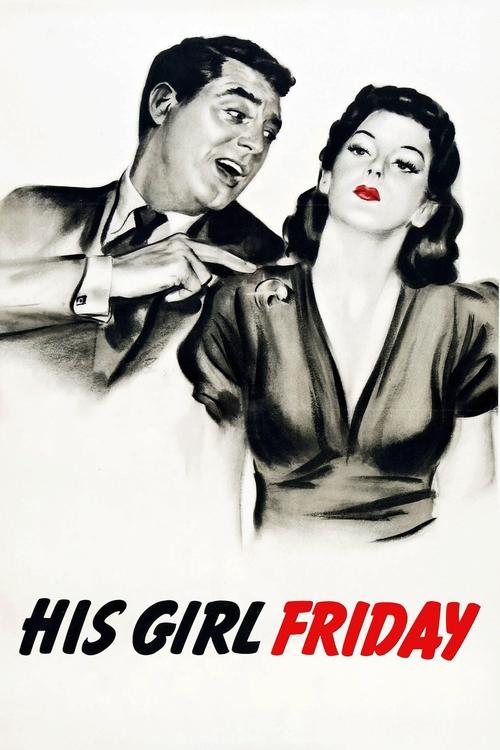
Title: His Girl Friday
Year: 1940
Director: Howard Hawks
Writer: Ben Hecht
Cast: Cary Grant (Walter Burns), Rosalind Russell (Hildy Johnson), Ralph Bellamy (Bruce Baldwin), Gene Lockhart (Sheriff Hartwell), Helen Mack (Mollie Malloy),
Runtime: 92 min.
Synopsis: Walter Burns is an irresistibly conniving newspaper publisher desperate to woo back his paper’s star reporter, who also happens to be his estranged wife. She’s threatening to quit and settle down with a new beau, but, as Walter knows, she has a weakness: she can’t resist a juicy scoop.
Rating: 7.399/10